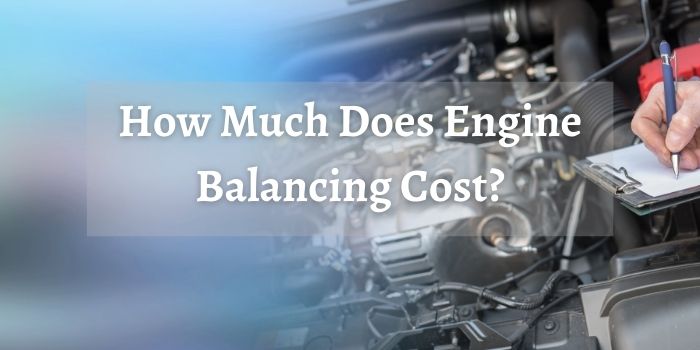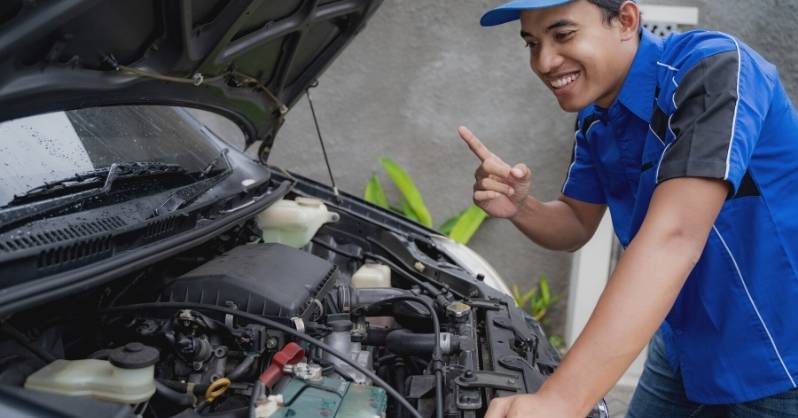Engine balancing is a crucial part of engine maintenance, yet it’s often overlooked by drivers.
Engine balancing helps to ensure that your engine runs smoothly and efficiently, which can improve fuel economy and lower emissions. So how much does engine balancing cost?
Here, we’ll take discuss what engine balancing is, and give you an idea of how much it costs to have done. Keep reading to learn more!

What Is Engine Balancing And What Does It Do
When an engine is being built, the pistons, rods, and crankshaft are all weighted so that they’re as close to perfectly balanced as possible. However, this is an inexact science, so the engine will still be slightly unbalanced. Engine balancing is the process of compensating for this by adding weights to various parts of the engine.
The goal is to create an engine that runs smoothly and efficiently. In addition to counterweights, engine balancers may also use vibration dampers to reduce harmonics and help the engine run more smoothly. By reducing vibrations, engine balancers can improve both performance and fuel economy.
How Much Does Engine Balancing Cost
On average, engine balancing costs between $100 and $200. However, some engines may require more extensive work, which can increase the cost to several hundred dollars.
What Are The Benefits Of Engine Balancing

This is important because it helps to ensure that the engine runs smoothly, with minimal vibrations.
Balanced engines tend to last longer than unbalanced ones, and they also tend to be more fuel efficient. In addition, balanced engines typically produce less noise and emission than their unbalanced counterparts.
When Should You Have Your Engine Balanced
A smooth-running engine is a happy engine, and one of the best ways to keep your engine happy is to make sure it’s properly balanced. That means the crankshaft, connecting rods, and pistons are all in alignment and working together harmoniously.
When an engine is out of balance, it can create some serious problems, including excessive vibration, shortened engine life, and reduced fuel economy.
So when should you have your engine balanced? Generally speaking, it’s a good idea to have it done every 50,000 miles or so. However, if you start to notice any of the aforementioned symptoms, it’s probably time to take your car in for a tune-up sooner rather than later.
How Can You Tell If Your Engine Needs To Be Balanced
If your engine is running rough, it could be because the engine needs to be balanced. When an engine is out of balance, it means that the pistons are not moving up and down evenly. This can cause vibration and shaking, and can make the engine run less efficiently.
There are a few ways to tell if your engine needs to be balanced.
First, check the engine mounts.
If they are loose or broken, this could cause the engine to be out of balance.
Then, look at the drive belts. If they are worn or frayed, they could also be causing the engine to vibrate. At last, listen to the engine while it is running. If you hear unusual noises, such as knocking or clicking, this could be a sign that the engine is out of balance.
Conclusion
In conclusion, the cost of engine balancing can vary depending on the type of engine and the complexity of the job. However, it is typically a very affordable service that can prolong the life of your engine and improve its performance.